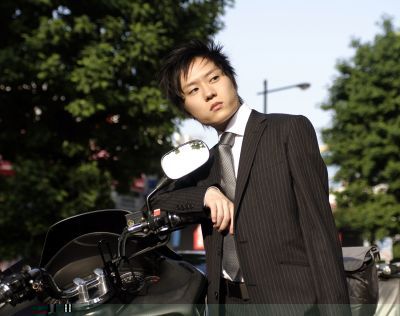Japanese men invest in their looks

Japan's cosmetics companies are devoting more of their efforts to producing lines for male consumers as increasing numbers of men worry about the way they look.
The new trend is more than Japanese men discovering their "metrosexual" side, according to analysts, and suggests that old-style masculinity is no longer cool here. "Men are becoming a lot more interested in making themselves beautiful, and they are buying cosmetics, paying attention to their hair and overall grooming," said Shigesato Kobayashi, a spokesman for cosmetics giant Shiseido Co.
That attention to detail extends to a boom in "esthetic salons" that cater exclusively to male clients. The largest chain in Japan -- Tokyo Beauty Center -- is promoted by none other than Hidetoshi Nakata, the former darling of Japanese soccer.
In 2002, Nivea-Kao Co. was the first Japan-based company to market a skincare product for men, followed by Shiseido in 2004 and Rohto Pharmaceutical in 2006. Sales of men's skin care cosmetics came to Y17.6 billion (€130 million) in 2008, up an impressive 16.9 percent from the previous year.
According to a survey by Mandom Corp., another of the major Japanese cosmetics houses, more than 59 percent of Japanese men now use facial wash, up from 48.8 percent in 2005. Among university students, the 2009 figure soared to over 85 percent.
Cosmetics firms have responded with new products, including beauty essence, milky lotions and cream preparations. Department stores across the country now have counters staffed by skin counsellors who are advising men on how to best take care of their faces. They are telling men that as their skin contains more oil and less moisture than female skin, they need to wash frequently and use moisturizing products regularly.
The fastest growing sector is the mass market, according to Shiseido's Kobayashi.
"This market is moving really fast for companies such as Oxy and Mandom, but the prestige sector is faring quite well still as well," he said.
"In Japanese society, it has become normal for men to buy products that used to be considered feminine and when the economy recovers we believe we will see even more men investing in the way they look," he added.
JR
Join our commenting forum
Join thought-provoking conversations, follow other Independent readers and see their replies
Comments
Bookmark popover
Removed from bookmarks